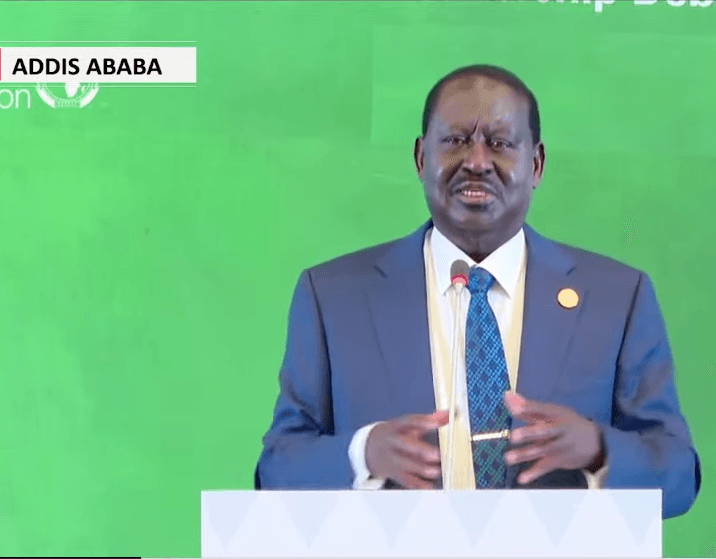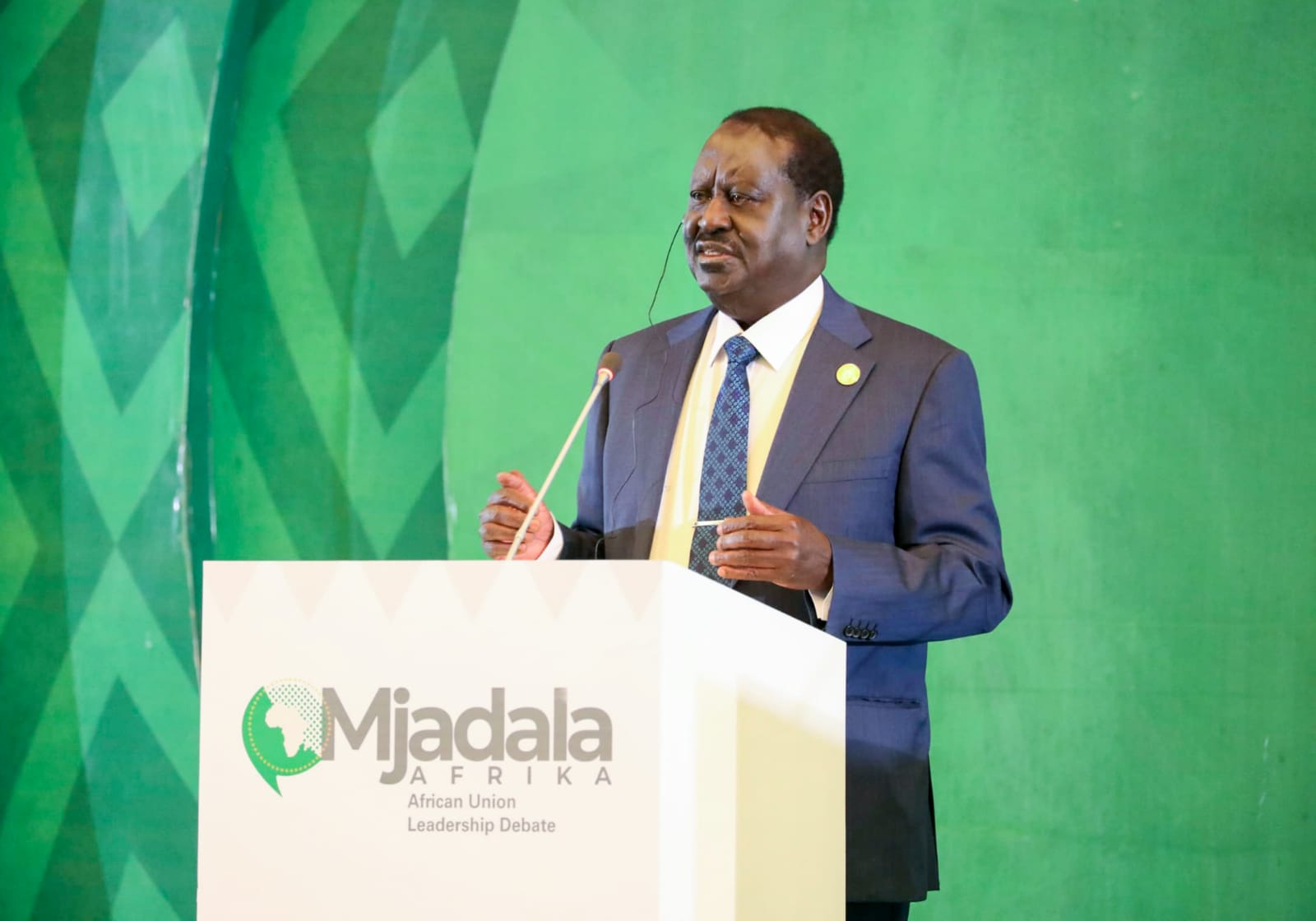

The recently concluded “Mjadala Africa” Debate offered three candidates an opportunity to outline their vision for the continent as the race for the African Union Commission (AUC) Chairmanship enters the penultimate stage.
The debate, held at the African Union Headquarters, saw Kenya’s former Prime Minister Raila Odinga battle it out with Djibouti’s Mahmoud Ali Youssouf and Madagascar’s Richard Randriamandrato.
From the outset, Odinga proved that he was an articulate and visionary leader. His opening remarks set the tone for his impressive performance.
Drawing from his extensive political and diplomatic experience, including his role as the AU’s High Representative on Infrastructure Development, he emphasized the need for a re-energized African Union that could rise to the demands of a rapidly changing global landscape.
He outlined his pillars of operation which are: Economic transformation, Infrastructure, Finance, Women’s economic Empowerment, Agriculture transformation, Climate Change, Youth employment, Digitalization, and Integration.
He then delved into the development prospects for a united Africa. Mahmoud Ali Youssouf on the other hand, was more or less concerned about the security of the region and the call to provide a more substantial support for a regional force that will not be dependent on partnership with foreign countries.
Regarding internal security, Richard Randriamandrato insisted on the necessity of fulfilling it independently; he opposed the presence of foreign military bases.
Generally, Odinga outlined an agenda of change that was forward-looking for Africa. He talked of creative ways of financing infrastructure, tapping into local assets to address continental issues, and combating poverty and inequality. His ideas regarding peacebuilding were very pragmatic, focusing on local solutions for the resolution of local conflicts.
Africans who watched the debate saw Odinga not only as an advocate for change but also as a symbol of hope – hope for the continent which still struggles with its destiny. Africa needs a leader of Odinga’s calibre.
In the Q&A session, Odinga seemed to have a great grasp of the problems affecting the continent. He offered two suggestions: having two fixed seats on the UN Security Council as a permanent seat for Africa since he considered the continent’s bench warming on the council as indefensible. Odinga also pointed out that African countries need to open up and trade more among themselves and use the domestic market as a lever for change.
In his closing remarks, Odinga reemphasized his ten-point agenda. He presented an inspiring picture of the united and economically developed continent where the major priorities are peace and security for everyone, along with the desire for economic changes. The applause he received from the audience as he gave his closing remarks painted the picture of a winning candidate.
The “Mjadala Africa” Debate allowed Odinga to demonstrate knowledge of the problems bedevilling the continent and his vision for a united and prosperous Africa.
No doubt, his introductory and closing statements and answers to questions emphasized clarity, vision, and pan-Africanism. On the other hand, Randriamandrato and Youssouf had their points stated quite reasonably, but Odinga wowed everyone with comprehensive arguments, and the way he put them across was more persuasive.
Indeed, the debate was a litmus test for Africa’s leadership. Odinga emerged as the clear victor, demonstrating that he has the ideas, experience, and passion needed to lead the African Union into a new era of transformation. His performance was not just a testament to his leadership but also a reflection of his deep commitment to the African cause.
With his vision and energy, Odinga promises to usher in a period of renewed hope and opportunity for the continent—a future where Africa takes its rightful place as a global leader.
David Mugo is a Communication Expert and a Commentator on social issues


















